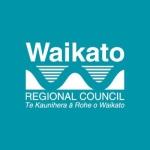ICM project informs council's land and water policies
A four year project working with farmers in the upper Waikato River catchment is helping the Waikato Regional Council develop its land and water policies.
The integrated catchment management (ICM) project was launched in September 2006 to test the integrated delivery of current council policies and engage with farmers to improve nutrient efficiency in the Little Waipa and Waipapa catchments.
Council ICM coordinator Ross Abercrombie said during last Thursday’s environment committee meeting that farms which had voluntarily implemented cost-effective and easy measures had reduced nitrate leaching by around 10 per cent.
However, that fell short of the 30 per cent reduction which the regional council believes would be needed to help maintain current water quality in the upper Waikato River, he said.
Mr Abercrombie added that a more comprehensive mix of regulation, education and incentives was probably required before farmers would invest more heavily in environmental mitigation practices.
“Farmers and industry have worked effectively to lower nitrate loss by 10 per cent. The ICM project has also broken new ground in terms of understanding farmer behaviour around nutrient management practice in New Zealand and this knowledge will prove invaluable in planned policy reviews,” he said.
Already the knowledge gained through the ICM project is being applied to the development of the Regional Policy Statement currently under review. In the longer term it will also help to inform the Waikato Regional Plan.
Committee chairperson Jane Hennebry said last week’s presentations showed a need for a complete policy framework, including targets for water quality, and regulation to achieve this.
“It is good to see progress reports on the effectiveness of integrated catchment management, what it can do and can’t do.
“But there is a continuing need for a comprehensive mix of measures, such as we are currently doing, combining information, education and one-on-one work with farmers. Our policy gap is the defining of the exact targets that farmers may be asked to achieve,” Cr Hennebry said.
“Considerable work will be required to develop agreement on targets and regulations and we will work closely with all stakeholders – including farmers, agriculture sector organisations, iwi and the wider community – as we move forward.”
